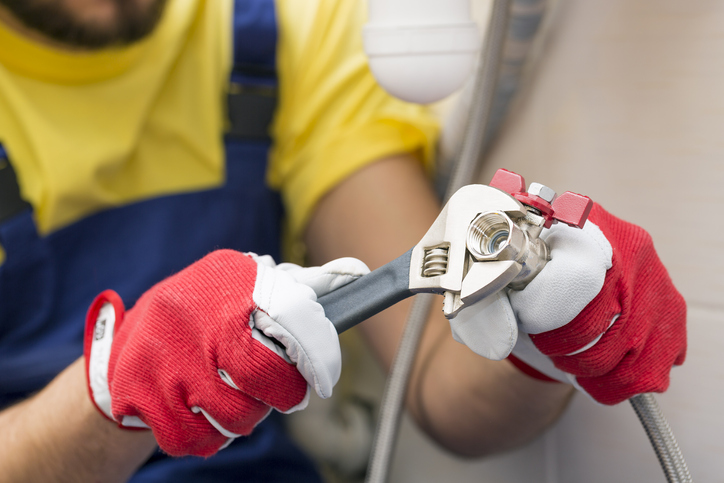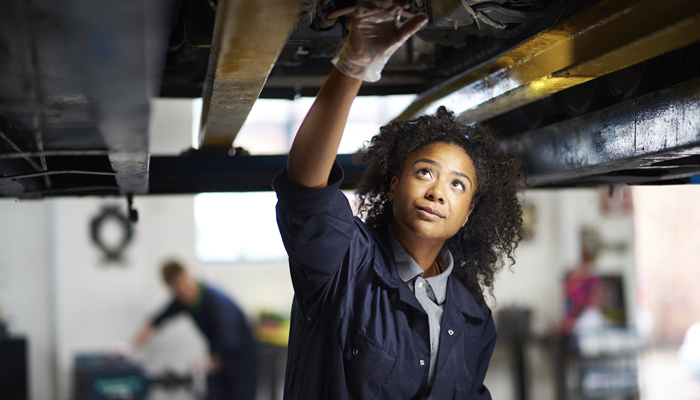What Are the Current Electrician Qualification Requirements?
Whether you’re planning for a career as an electrician or hiring an electrician for a job, it’s important to know what qualifications are required. In the UK, electricians must follow clear training and certification paths to ensure their work is legal, safe and reliable. Without the right qualifications you won’t be able to arrange insurance.
Here, we’ll explain the main electrician qualification requirements, which certifications matter, how to earn them and what to check when hiring a qualified professional.
Why electrician qualifications matter
Electrician qualifications play a serious role in keeping people and properties safe. Though it may seem obvious, electricity is dangerous when not handled correctly, so the UK has strict standards in place to make sure only trained individuals can carry out electrical work.
For professionals, having the right qualifications proves they’ve got the knowledge and skills to work safely and reliably. For customers, it offers peace of mind that installations or repairs meet the necessary legal and safety requirements.
No matter the scale of the job, hiring an unqualified electrician carries serious risks. Faulty or poorly installed electrics can lead to fires, injuries and expensive damage. It might also leave you without legal protection if something goes wrong, especially if your home or business insurance requires electrical work to be carried out by someone with the correct credentials.
In order to comply with UK regulations such as the Building Regulations – notably Part P for domestic work, electricians need to have qualifications. These rules help ensure that electrical installations in homes and commercial buildings are safe and up to standard.
Core electrician qualifications in the UK
Becoming a qualified electrician in the UK involves both academic study and practical training. The typical route includes:
City & Guilds 2365 (Levels 2 and 3)
This course is often the first step and is usually completed at a college. It teaches the basics of electrical theory, health and safety, wiring regulations and installation practices. Level 2 focuses on foundational knowledge, while Level 3 goes into more advanced skills and prepares you for work in the field.
NVQ Level 3 in Electrical Installation
This qualification is completed while working on-site and involves being assessed on your real-world skills and knowledge. It confirms that you can carry out electrical work safely and to industry standards. You’ll need a portfolio of work-based evidence and may be observed by assessors during installations.
AM2 Assessment (Achievement Measurement 2)
The AM2 is a practical test taken at an approved centre. It’s often the final step to becoming fully qualified. It checks your ability to carry out safe, compliant installations independently, including fault finding, inspection, testing and certification.
These qualifications are considered essential if you want to register as a competent electrician and legally carry out work without supervision. They also make you more attractive to employers and increase your chances of winning work if you’re self-employed.
Certification and registration: what to know
As well as the core qualifications, electricians can hold certifications and registrations that demonstrate specialist knowledge or give them the right to work in certain environments. Electrician certifications in the UK include:
ECS (Electrotechnical Certification Scheme) card
An ECS card acts as proof that you’re a qualified and competent electrician. It’s required to access many commercial construction sites in the UK. To apply, you’ll need to show your qualifications and pass a health and safety test. Different types of cards are available depending on your role and experience.
NICEIC registration
NICEIC is one of several government-approved certification bodies for electrical contractors. Registering means your work is regularly assessed to ensure it meets the latest standards. NICEIC-registered electricians can self-certify their domestic installations under Part P of the Building Regulations, saving time and money for both them and their clients.
Part P certification
This is a requirement for electricians working on residential properties. It confirms you understand the building regulations around electrical safety in homes. Certification is usually obtained through registration with a competent persons scheme such as NICEIC, NAPIT or ELECSA.
Holding these certifications shows that you not only have the right qualifications but also work to high industry standards. For customers, it’s a useful way to identify trusted professionals.
How to check an electrician’s credentials
It’s a good idea to make sure your electrician has the right qualifications and certifications before they start. A few simple checks can help you feel confident they’re up to the job:
Ask for certificates
Any reputable electrician should be able to show evidence of their qualifications – including NVQ Level 3 and AM2. If they’re working in a domestic setting, check that they are Part P certified.
Verify their ECS card
ECS cards include the holder’s name, photo and job title. You can also use the ECS website to check that a card is valid and that the qualifications listed match the type of work they’re doing.
Check registration with a recognised body
NICEIC and similar organisations have searchable registers on their websites. These let you confirm whether a contractor is currently certified and what areas of work they are qualified to carry out.
Ask about insurance
Make sure the electrician has public liability insurance, which covers you if you accidentally cause damage or injury to members of the public arising from their work. Some may also hold professional indemnity or tools cover.
By checking these details, you reduce the risk of poor and unsafe workmanship, while ensuring your project complies with electrical safety regulations.
How to become an electrician
Thinking about becoming an electrician? There’s more than one way to get there, and the right route for you will depend on your age, experience and how you prefer to learn. Here are the main paths into the trade:
- GCSEs or equivalent
Start by getting good GCSEs in maths, English and science – these subjects form the foundation of electrical theory and problem-solving.
- College-based training
Many people begin with a City & Guilds 2365 course at their local college. This is a popular option for school leavers and adults alike, offering a mix of classroom and workshop-based learning.
- Apprenticeships
A paid apprenticeship allows you to earn while you learn. You’ll split your time between studying at college and gaining experience on-site. Most apprentices work towards an NVQ Level 3.
- Work-based NVQ assessment
If you already work in the electrical industry, you can get assessed on the job. You’ll build a portfolio of evidence under the guidance of a qualified assessor and complete the AM2 when ready.
- Adult training and career change programmes
Some training centres offer flexible learning options for adults who want to switch careers. These can include part-time courses, intensive bootcamps and blended online learning, but they must still lead to recognised qualifications.
Whichever path you choose, check the training provider is reputable, and that their qualifications are recognised in the industry.
Insurance and qualification requirements
As well as improving your skills, professional qualifications also help when it comes to getting insured. At Towergate, we offer tailored trades insurance for electricians with the right certifications and experience.
Insurers often ask for proof of qualifications before offering cover. This is because trained electricians are considered a lower risk. They’re more likely to follow safety regulations, carry out compliant work and minimise the chance of accidents or claims.
Holding valid qualifications can also open up access to specialist insurance policies. For example, employers’ liability cover, public liability, professional indemnity and tool insurance can all be tailored around the type of work you do and your experience level.
Staying up to date with your training and renewing certifications when needed keeps you on the right side of the law and ensures your insurance remains valid.
Protect yourself with electricians' insurance
Whether you’re carrying out the work or hiring someone to do it for you, electrician qualification requirements are there to keep everyone safe. When you know what to look out for, you’re one step closer to staying compliant, reducing risks and making informed choices.
If you’re a qualified electrician or training to become one, we can help with insurance that fits your trade. Get a quote for electricians insurance online or by calling us on 0330 828 1688.
Electrician qualification FAQs
What qualifications do I need to become an electrician in the UK?
You’ll typically need a City & Guilds 2365 qualification, an NVQ Level 3 in Electrical Installation, and to pass the AM2 assessment. These prove you have the knowledge and practical skills to work safely and legally as a qualified electrician in the UK.
How long does it take to become a qualified electrician?
It usually takes three to four years to become fully qualified, depending on your training route. This includes completing college-based study, on-the-job experience and passing final assessments like the AM2. Some adult training routes may be shorter but must still meet national standards.
What is the difference between an ECS card and NICEIC registration?
An ECS card proves you’re qualified to work on-site and have up-to-date health and safety knowledge. NICEIC registration means your work is regularly assessed and you can self-certify domestic installations. Both demonstrate competence but serve different roles in the electrical industry.
Can I check if an electrician is registered or certified?
Yes. You can check NICEIC registration on their website or verify an ECS card using the ECS Check service. Always ask for proof of qualifications and confirm they’re up to date before work begins, especially for domestic or regulated projects.
Do electricians need insurance to work in the UK?
Insurance isn’t legally required, but most electricians carry public liability insurance as a minimum. Employers’ liability cover is needed if you hire staff. Insurance protects you and your clients against accidental damage, injury or claims, while many sites require proof before work starts.
Electricians' insurance from Towergate
Whatever you specialise in, we can help with electricians cover for domestic, commercial and industrial work.
Get an electricians’ insurance quote
Get a quote online or call Towergate advisers on 0330 808 8237
About the author
Diane Caplehorn is a respected industry leader with over 25 years' experience within the insurance sector. She works across a wide spectrum of insurance products and policy development, delivery and optimisation for health and beauty, professional risks and martial arts clients.
Consistent with our policy when giving comment and advice on a non-specific basis, we cannot assume legal responsibility for the accuracy of any particular statement. In the case of specific problems we recommend that professional advice be sought.
Date: July 18, 2025
Category: Trade












